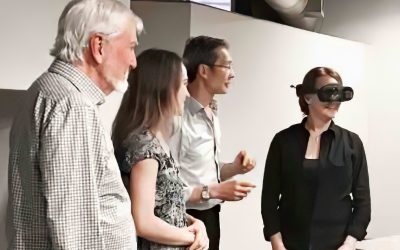Cambridge Phenotyping presents a new fully automated AI-driven home-cage system for cognitive and behavioural phenotyping in mice. The system incorporates spontaneous alternation T-maze, novel-object recognition and object-in-place recognition tests combined with monitoring of an animal position, water consumption, quiescence and locomotion patterns, all carried out continuously and simultaneously in an unsupervised fashion over long periods of time. Mice learnt the tasks rapidly without any need for water or food restrictions.
Cell Reports Methods 2026 publication
Our fully automated novel object recognition (NOR) study using smart-Kages has been published in the January 2026 issue of Cell Reports Methods








